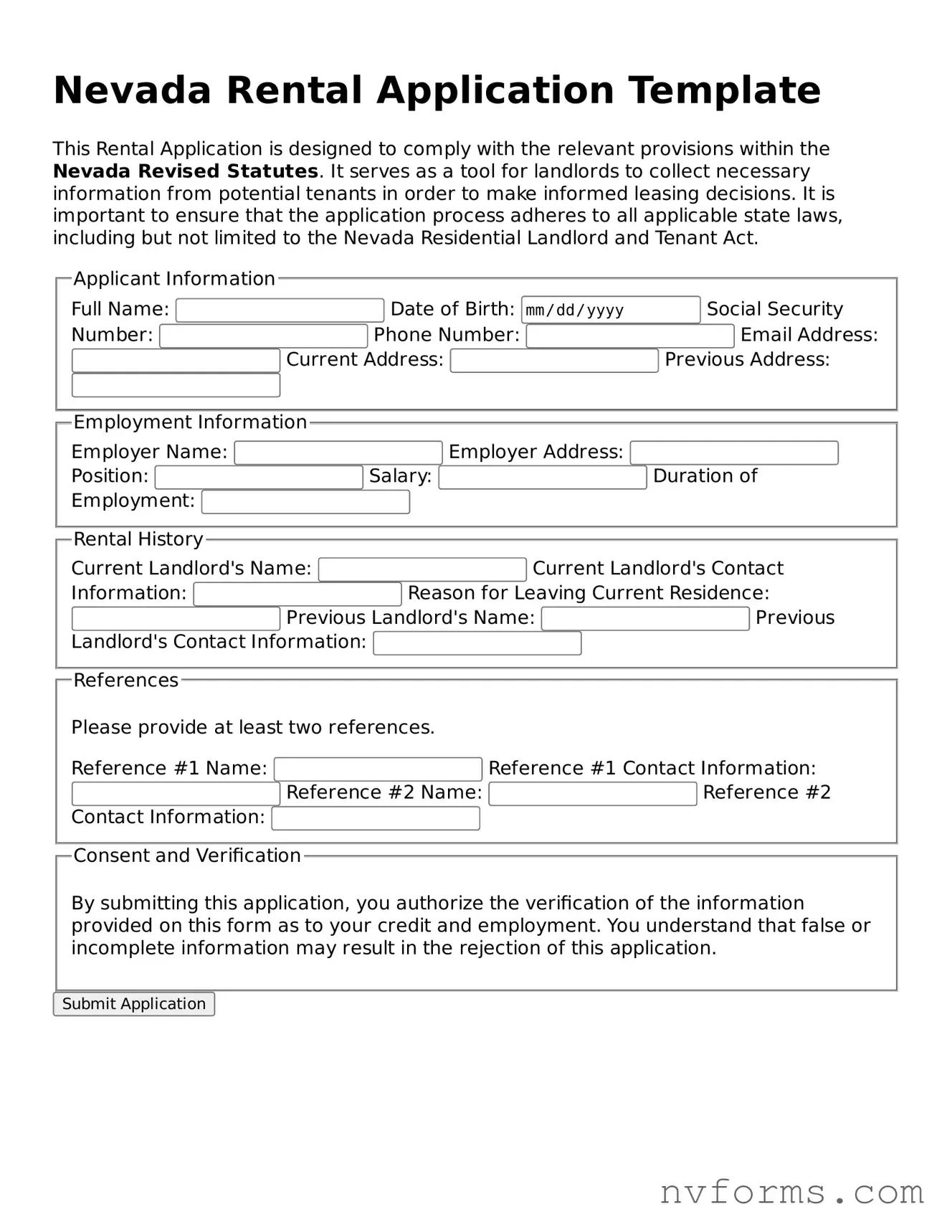The Nevada Rental Application form is similar to other documents used within the realm of property management and tenant screening, yet each serves a unique purpose in the rental process. The documents similar to the Nevada Rental Application form include the Residential Lease Agreement, the Tenant Background Check Authorization form, and the Property Management Agreement. Despite their differences, they all play significant roles in ensuring a thorough and fair process for both landlords and tenants.
The first document that bears similarity to the Nevada Rental Application form is the Residential Lease Agreement. Like the application form, the Residential Lease Agreement contains information about the tenant(s) and the property, outlining the terms and conditions under which the property will be rented. However, while the Rental Application is used to screen potential tenants, the Residential Lease Agreement is a legally binding contract that is executed once the tenant has been approved. It sets forth the duration of the lease, rent amount, security deposit details, and other conditions of tenancy.
Another document that shares similarities with the Nevada Rental Application form is the Tenant Background Check Authorization form. This form is an essential part of the tenant screening process, much like the rental application. It is specifically designed to obtain the tenant's consent for the landlord or a third party to conduct a background check, including credit history, criminal records, and previous rental history. The key difference is that while the rental application collects general information about the potential tenant, the background check authorization explicitly seeks permission to verify this information, ensuring a comprehensive evaluation of the applicant’s suitability.
Lastly, the Property Management Agreement shares some similarities with the Nevada Rental Application form, particularly in terms of property details and management responsibilities. This agreement is between the property owner and the management company or individual responsible for overseeing the rental. It covers aspects such as the scope of management duties, financial arrangements, and terms of service. Although it is a different kind of document, aimed at formalizing the relationship between the property owner and manager, it indirectly supports the tenant screening and lease agreement processes by establishing clear management practices.

